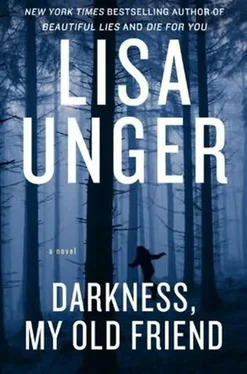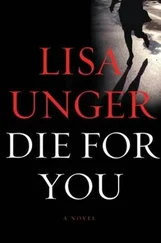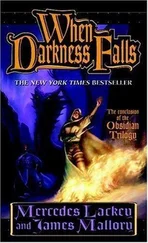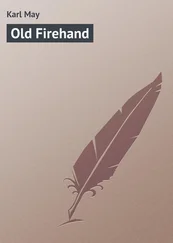Henry pulled into his driveway. The same basketball hoop he’d used in high school hung above the garage. He’d repainted it recently and put a new net on it. He hadn’t used it in ages, though. But for sentimental reasons he couldn’t bring himself to take it down.
“He came by asking some questions, wound up coming out to the woods with us to look for the kids. It felt like old times.”
“Hmm,” said Maggie. It sounded like she had taken a sip of something she was drinking. “When was this?”
“This afternoon, close to five.”
“Hmm,” she said again. But this time it sounded different.
“What?” he said.
“Oh, nothing. I just thought he had another appointment this afternoon.”
“Uh-oh,” said Henry. “Did I get the poor guy in trouble?”
He expected her to laugh, but she didn’t.
“No,” she said. “It’s fine.”
Jones and Maggie had had their rough patches over their twenty-plus-year marriage. But they were one of those couples, so obviously connected, in love, faithful, and abiding, that Henry could barely imagine one without the other-though he had been guilty of wishing otherwise in the past.
She changed the subject. “Did you know Marla Holt?”
“A little,” he said. “We were neighbors. We ran together sometimes.”
It was then that he realized he’d called his friend to talk about how that wasn’t really it, that there was more. He wanted to tell her and hear what she had to say. But the words didn’t come. And the conversation wound down into the usual pleasantries, a plan to have coffee at the end of the week, meeting at their usual spot. And then he ended the call, wound up sitting for a while in his driveway, his mind wandering.
Jones had made it as far as the second clearing. There was nothing there to see, so he turned around and was heading back. He kept his flashlight on the ground in front of him. The sky was dark, and the whole world seemed to hold its breath. He didn’t hear any birds or the rustling of small animals fleeing from his path. In the summer the night air would be alive with sound.
The abandoned mines were one danger back here. There was a siren song from those dark entrances that young boys could hardly resist. But beyond that there were the residents, the old families who didn’t like people trespassing on their land.
The city people who had recently settled in The Hollows referred to them as “mountain people.” The term brought to mind unshaven thugs with flannel shirts, riding four-wheelers, with rifles strapped to their backs, a bottle of moonshine between their legs. It wasn’t all that. But it wasn’t not that, either. The families owned huge tracts of land, refused to sell to encroaching developers. These were people who believed Americans had a right to bear arms, who made their own liquor once upon a time; they didn’t like trespassers. The biggest problem these days was the meth labs that had replaced liquor stills. During his time on the Hollows PD, they’d dismantled three with the help of the DEA and the FBI. It was a rural problem. The labs emitted such a toxic smell that it required acres to run one with any stealth. There were still plenty of empty acres in The Hollows.
Because Jones had lived so long in The Hollows, he did fairly well with the longtime residents. Chuck Ferrigno, a New York City transplant, had admitted that he wasn’t doing so well. Hollows people didn’t like city transplants, and they didn’t like the police, so Chuck started every local encounter with two strikes against him.
Jones could hear the rushing of the Black River. It was not quite a mile from where he was, but sometimes on quiet nights like this in the woods, sounds carried in an odd way. He approached the Chapel clearing again on his way out, was going to pass right by and return to his car. It was getting late, and he wasn’t even sure what he’d hoped to find. But then he decided instead to move into the clearing. He shone his light here and there, wishing again for his gun. He walked around aimlessly for a few minutes, tracking the beam through the grass. He was about to turn and go when the light caught a glint of something.
He knew the clearing well. If he crossed through the tall grass, he’d find the foundation of another old barn, one that had long since fallen or been demolished. There was a rusted-out old car, too, somewhere to the right. He didn’t remember a mine shaft, but he wasn’t far from a rock outcropping in which a mine entrance had been blown, so that meant that tunnels could be anywhere below him.
As he moved deeper, he could see where someone had cut back the grass, and he followed the swath into the field. It wasn’t long before he saw where a hole had been dug. But there was nothing to it; it looked as if the project had been abandoned.
What had Michael Holt been doing out here? What had he been digging for, if not that mine? That story Bethany Graves had told didn’t ring true. He’d never heard it before. There were lots of tales and legends about ghosts and murders in The Hollows. Some of them were true, some weren’t. But Jones was pretty sure he’d heard them all.
His phone rang then. He pulled it from his jacket pocket and answered. He didn’t have to look at the caller ID to know who it was. No one ever called him except Maggie.
“Hey,” he answered.
“Where are you?” Her voice broke up, the line full of static. Cell phone reception was bad out here. Sometimes there was no service at all.
“On my way home,” he said. It wasn’t a lie; he was about to leave. There was nothing for him to do here. He didn’t have the tools with him to dig more out of the hole. But he figured Chuck Ferrigno would like to know about it. Jones walked to the edge of the hole and shone his light down. Nothing to see but dirt. He’d need equipment and manpower to find out what was buried there.
“So I understand you didn’t make it to your appointment today,” Maggie was saying. He only heard the sentence in chops. But he didn’t need to hear the words. He heard the tone. She was angry with him.
“No,” he said. “I rescheduled for next week.” That was a lie. He hadn’t rescheduled. But he would. Probably. His answer was greeted with silence.
“Reception is bad,” he said. “We’ll talk when I get home.”
Still nothing.
“Maggie. Did I lose you?”
But the line was dead. He didn’t know if they’d gotten cut off or if she’d hung up. All the service bars on his phone were gone; he couldn’t call out. He felt angry then-angry at her for being angry with him. It wasn’t her business-was it?-if he went to therapy or not. She couldn’t control everything about him. He was a man, after all, not her kid, not Ricky. And he was the one who would decide if he needed to keep seeing a shrink.
It was fully dark now. He stuffed his phone back into his pocket. He made his way to the car, moving fast, not looking back.
It wasn’t as though she was in them. She didn’t feel what they felt, exactly. But her empathy to their various plights was so total that she took on a bit of the terror, the sorrow. Her own adrenaline would start to pump. She couldn’t read their thoughts, didn’t see through their eyes. She was the watcher. But she was neither omniscient nor omnipresent. Eloise had always felt, though she couldn’t say why or by whom, that she was shown a particular perspective. And sometimes this perspective was partial, and sometimes she was front and center. Oh, it was frustratingly inconsistent. She had no control over it. She was a spectator to some twisted game. She was forced to watch but unable to choose her view.
And in the case of Marla Holt, or supposedly Marla (because sometimes what she thought was one person was actually someone else), there was sound and blurry, distant visuals. Eloise could hear her ragged breathing as she raced through trees. Above her a night sky was riven with stars, visible above the reaching branches of dead trees. There were voices, male voices in the distance. But Eloise couldn’t hear the words. She could just pick up on the anger and fear in their tones.
Читать дальше












